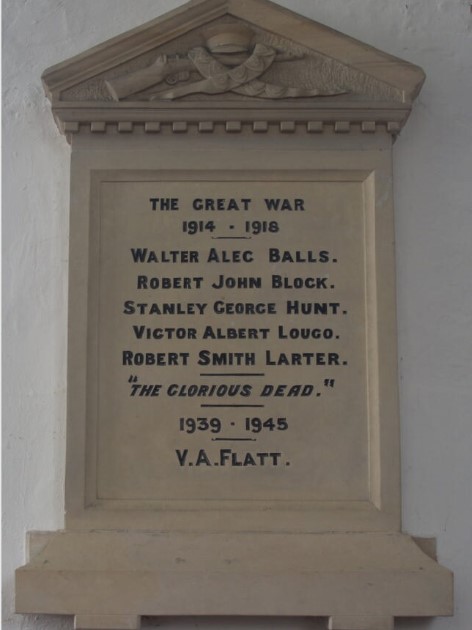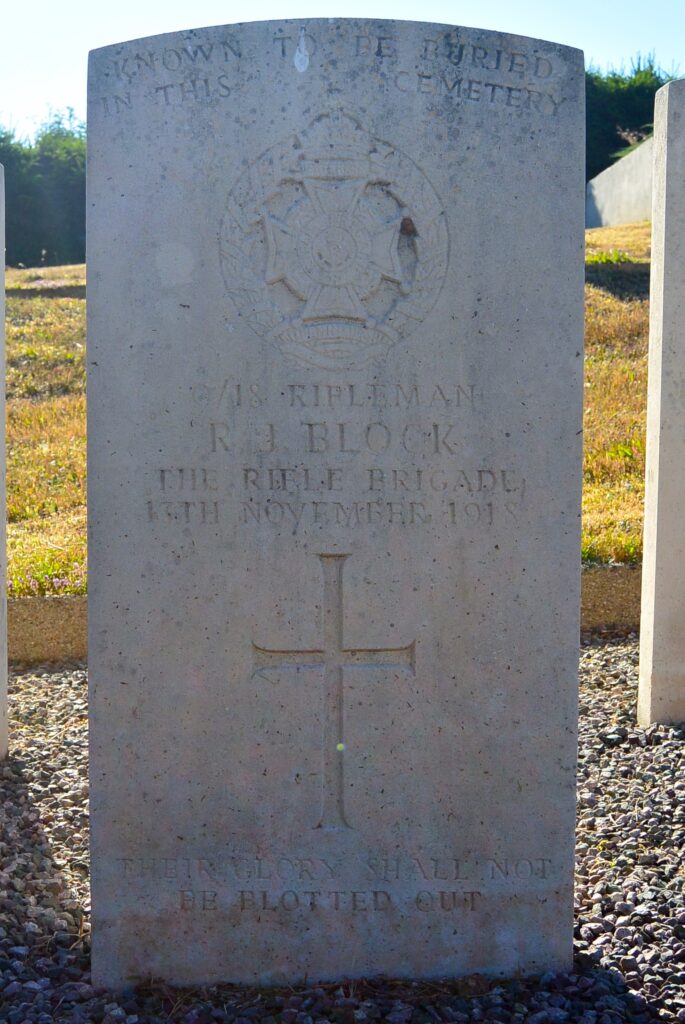
Name: Robert John Block
Born: January 1899
Rank: Rifleman
Regiment: Rifle Brigade
Unit: 3rd Battalion
Died: 13th November 1918, aged 19.
Buried: Plaine Frene National Cemetary, Bas-Rihn, France.
Robert John Block was born in 1899 in the small rural parish of Blyford, Suffolk, a quiet village nestled along the River Blyth. He was the son of John Block, a gardener, and Louisa Spall, and one of three children alongside his brother Percy and sister Grace. In the 1911 census, Robert is listed as a school-aged boy living at home with his family – a peaceful life shaped by the rhythms of the countryside and close-knit village life.
As the First World War drew on and the toll on Britain’s youth grew heavier, Robert answered the call to serve. He enlisted as a Rifleman in the 3rd Battalion of the Rifle Brigade (Prince Consort’s Own) – a regiment renowned for its professionalism, green uniforms, and history of elite light infantry service. By the time Robert joined the battalion, it had already seen years of hard fighting on the Western Front. The 3rd Battalion was part of the 17th Brigade in the 6th Division and had served in some of the war’s most brutal battles, from the Somme and Vimy Ridge to Cambrai and Passchendaele.
In the final months of the war, the 3rd Battalion was engaged in the Final Advance in Picardy, a series of aggressive Allied operations designed to break the remaining German lines. These mobile advances were a stark contrast to the static trench warfare that had defined much of the previous years. Robert would have taken part in intense and dangerous movements across the shattered French countryside, under constant threat from artillery and machine gun fire, as the British forces pushed ever eastward.
It was here, in these few months, that Robert was taken prisoner. No doubt hastily shuffled back into German rear trenches in the chaos of retreat, no records survive of his capture, nor of his transfer between camps within Germany. We only have his Effects Register, which lists his as having “Died as P of W” – Prisoner-of-War.
Tragically, Robert John Block died of fever, still in the hands of his captors, on 13 November 1918, just two days after the Armistice was signed. He was only 19 years old. Though peace had been declared, many soldiers continued to succumb to wounds, illness, or incidents in the chaotic aftermath of the war. Robert was buried with honour at Plaine Frêne National Cemetery in Alsace, eastern France – a region scarred by conflict and long contested between France and Germany.
As a result, his mother was given a War Gratuity fund of £9 and 10 shillings – though she would not find out about his death until August of 1919.
Robert’s name is etched into the Blyford War Memorial at All Saints Church, a lasting reminder of the heavy price paid by small communities like his. He was one of five young men from Blyford who died during the war—a sobering loss for a parish of such modest size.
Robert John Block’s story is one of quiet service and ultimate sacrifice. His short life reflects the profound impact of the First World War on even the most remote corners of England, and his memory continues to live on in the very landscape he left behind.

“THEIR GLORY SHALL NOT BE BLOTTED OUT”
